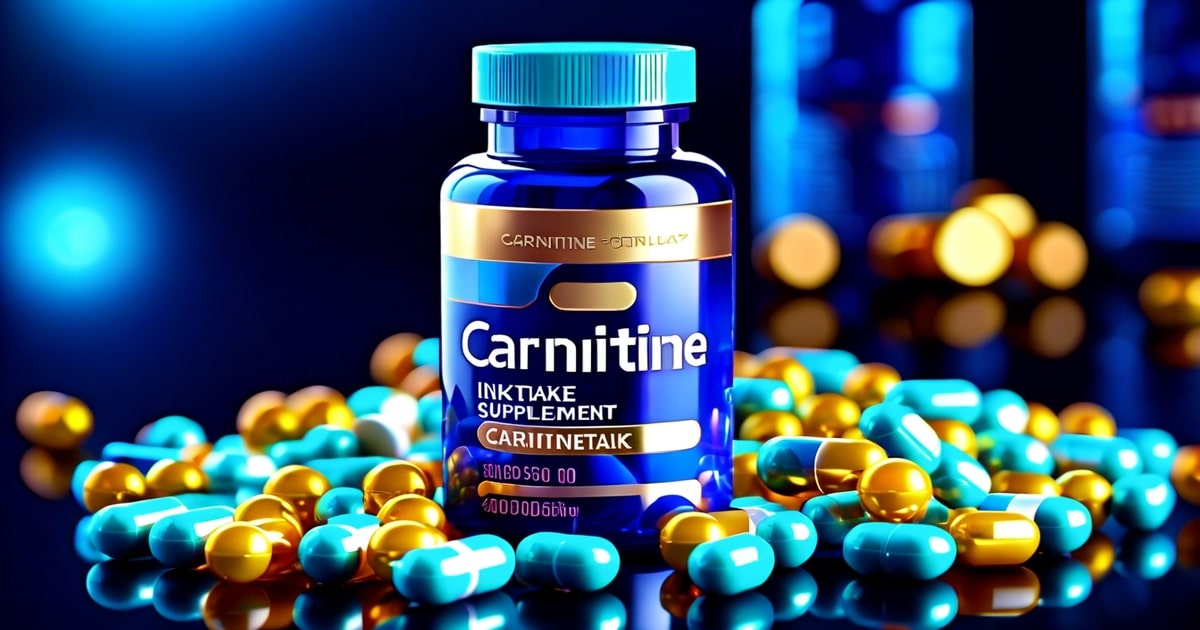Key Takeaways
-
Acetyl L-Carnitine, amino acids, offers various health benefits like improved brain function, heart health, and exercise performance.
-
Carnitine plays a crucial role in body energy production, fat metabolism, and fatty acid oxidation.
-
Natural sources of carnitine include red meat, poultry, fish, dairy products, and some plant foods like avocados and asparagus.
-
When combined with a healthy diet and regular exercise, Acetyl-L-Carnitine supplementation may aid in weight loss by boosting metabolism and fat burning.
-
Acetyl-L-Carnitine can positively impact brain function and mental health by enhancing memory, focus, and mood.
-
Incorporating Acetyl-L-Carnitine supplements into your routine may benefit heart health, improve exercise performance, and help manage conditions like type 2 diabetes.
Unveiling the historical tapestry of acetyl-l-carnitine benefits, this post delves into its profound impact on health and well-being through supplementation and clinical trials. From enhancing cognitive function to boosting energy levels, the advantages are manifold. Join us as we uncover how carnitine supplementation, a powerhouse supplement, has been a game-changer for many seeking improved mental clarity and physical vitality. Discover the secrets behind acetyl-l-carnitine’s long-standing reputation as a valuable ally in the quest for overall wellness through supplements and clinical trials.
Health Benefits of Acetyl L-Carnitine
Energy Production
Acetyl-L-Carnitine supplementation benefits the body by supporting energy production. It helps transport fatty acids into cells for energy.
-
Boosts cellular energy
-
Enhances stamina during physical activities
Acetyl L-Carnitine is like a fuel transporter, ensuring your cells have the necessary resources to keep you going strong throughout the day.
Brain Function and Exercise Performance
One of the potential benefits of Acetyl L-Carnitine is its ability to enhance brain function and exercise performance. It crosses the blood-brain barrier, aiding in mental clarity and focus.
-
Improves memory retention
-
Supports cognitive health during aging
Acetyl L-Carnitine can also improve exercise performance by reducing fatigue and enhancing muscle recovery post-workout.
Role of Carnitine in the Body
Facilitates Energy Production
Carnitine, an essential compound in the body, aids in energy metabolism by transporting fatty acids into cells for energy production. This process is crucial for generating the fuel to power various bodily functions.
-
Enhances energy production
-
Vital for cellular function and overall metabolism
Acts as Antioxidant
By acting as an antioxidant, carnitine plays a significant role in protecting cells from damage caused by harmful molecules known as free radicals. This protective function helps maintain cell health and overall well-being.
-
Protects cells from damage
-
Supports cellular integrity and longevity
Natural Sources of Carnitine

Animal Products
Animal products like red meat, such as beef and lamb, are rich sources of carnitine. They provide the body with ample amounts of this essential nutrient.
Dairy products like milk and cheese also contain moderate levels of carnitine. These products can contribute to fulfilling the body’s carnitine requirements.
Plant-Based Sources
For those following a plant-based diet, avocados, asparagus, and whole wheat bread are excellent sources of carnitine. These foods offer a way for vegetarians to incorporate carnitine into their diets.
Weight Loss and Acetyl-L-Carnitine
Fat Conversion and Energy Boost
Acetyl-L-carnitine is vital in converting stored fat into energy, benefiting individuals aiming to lose weight. By facilitating this conversion process, patients can utilize fat stores as an energy source, aiding in weight loss efforts.
When acetyl-L-carnitine enters the system, it helps boost metabolism, leading to increased fat burning. This boost in metabolic rate supports the body in efficiently utilizing calories and promoting weight loss by burning excess fat reserves.
Exercise Support and Reduced Fatigue
During physical activity or exercise sessions, acetyl-L-carnitine can help reduce fatigue levels. This reduction in fatigue allows individuals to engage in more extended or higher-intensity workouts, contributing to their overall weight loss journey by supporting consistent exercise routines.
-
Pros:
-
Aids in converting stored fat into energy
-
Boosts metabolism for enhanced fat-burning
-
Reduces fatigue during exercise
-
-
Cons:
-
May not yield significant results if not combined with a balanced diet, regular exercise, and carnitine supplementation.
-
Impact on Brain Function and Mental Health
Cognitive Enhancement
Acetyl-L-carnitine benefits include enhancing cognitive function, improving memory, and boosting focus. Research suggests that it may help alleviate symptoms of depression and enhance mood.
Studies have shown that acetyl-L-carnitine can protect against age-related cognitive decline, promoting overall brain health. By crossing the blood-brain barrier, it directly impacts brain function positively.
Protection Against Cognitive Decline
The beneficial effects of acetyl-L-carnitine extend to protecting the brain from cognitive impairment associated with aging. It has been linked to improved mental clarity in older adults.
-
Boosts cognitive function
-
Improves memory and focus
-
Alleviates symptoms of depression
Heart Health, Exercise Performance, and Type 2 Diabetes
Cardiovascular Health
Acetyl-L-carnitine benefits include supporting heart health by improving blood flow and reducing inflammation. These effects can help prevent conditions like heart failure and improve overall cardiovascular function.
Studies have shown that acetyl-L-carnitine enhances exercise performance by increasing endurance and reducing muscle damage. Athletes may experience improved physical performance due to these benefits.
Blood Sugar Regulation
For individuals with type 2 diabetes, acetyl-L-carnitine is crucial in helping regulate blood sugar levels. By aiding in metabolism and insulin sensitivity, it can assist in managing diabetes mellitus effectively.
-
Supports heart health
-
Enhances exercise performance
-
Regulates blood sugar levels for type 2 diabetes
Recommended Intakes and Dosage of Carnitine

Daily Intake Guidelines
The recommended daily intake of acetyl-L-carnitine varies depending on factors such as age and gender. A typical dosage ranges from 500 to 2,000 mg per day for optimal health benefits. It is crucial to note that individual needs may vary, so consulting a healthcare professional for personalized recommendations is essential.
Acetyl-L-carnitine can be beneficial when taken in small amounts regularly. These doses are generally well-tolerated by most individuals and offer various advantages related to heart health, exercise performance, and managing conditions like type 2 diabetes.
-
Benefits:
-
Supports heart health
-
Enhances exercise performance
-
Aids in managing type 2 diabetes
-
-
Considerations:
-
Individual dosage requirements may differ.
-
Consulting a healthcare provider is recommended for personalized advice
-
Consultation with Healthcare Professionals
Before starting any new supplement regimen or significantly altering your intake of acetyl-L-carnitine, it’s advisable to seek guidance from a healthcare professional. They can provide insights tailored to your needs based on age, sex, overall health status, and existing medical conditions.
-
Contact your primary care physician or a registered dietitian.
-
Discuss your intention to incorporate acetyl-L-carnitine into your routine.
-
Provide information about any preexisting medical conditions or medications you are currently taking.
-
Follow the personalized dosage recommendations provided by the healthcare professional.
Risks and Interactions of Acetyl-L-Carnitine Supplementation
Gastrointestinal Discomfort and Nausea
Some individuals may experience adverse effects like gastrointestinal discomfort or nausea when taking acetyl-L-carnitine supplements. These symptoms can range from mild to severe, impacting the individual’s overall well-being.
Taking acetyl-L-carnitine with food helps reduce the likelihood of experiencing these side effects. It’s essential to start with a low dose and gradually increase it to assess tolerance levels.
Medication Interactions
Acetyl-L-carnitine supplementation can interact with certain medications, such as blood thinners or thyroid hormones. This interaction may alter the effectiveness of both the supplement carnitine and medication, leading to potential health complications.
Consulting a healthcare provider before starting new dietary supplements is crucial, especially if you are already on prescribed medications. Based on your medical history and current treatments, they can guide whether acetyl-L-carnitine is safe for you.
Closing Thoughts
You’ve now uncovered the myriad benefits of acetyl L-carnitine, from its impact on brain function to its role in weight loss and heart health. By understanding the natural sources, recommended dosages, and potential risks associated with supplementation, you can make informed choices about incorporating this powerful compound into your wellness routine. Remember, balance is key; consult a healthcare professional before significantly changing your diet or supplement regimen. Stay curious, stay informed, and, most importantly, stay proactive in nurturing your health and well-being.
Frequently Asked Questions
What are the main health benefits of Acetyl L-Carnitine?
Acetyl-L-Carnitine offers various health benefits, including improved brain function, energy production, weight management support, heart health enhancement, and abstract view. It also aids in managing conditions like diabetes and Alzheimer’s disease.
How does Carnitine contribute to weight loss?
Carnitine is crucial in transporting fatty acids into cells’ mitochondria for energy production. This process helps utilize fat as a fuel source during physical activities, thus supporting weight loss efforts when combined with exercise and a balanced diet.
Can Acetyl-L-Carnitine impact mental health positively?
Yes, Acetyl-L-Carnitine has been linked to enhanced brain function and mood regulation. It may help alleviate symptoms of depression, anxiety, and age-related cognitive decline by promoting neurotransmitter synthesis and protecting brain cells from damage.
What is the recommended intake of Carnitine for optimal health benefits?
The recommended dosage of Carnitine varies depending on individual needs and health conditions. Generally, doses between 500mg and 2000mg per day have been used in studies for different purposes such as improving exercise performance or cognitive function.
Are there any risks or interactions associated with acetyl-L-carnitine supplementation?
While generally considered safe for most people when taken at appropriate doses, some individuals may experience side effects like nausea or gastrointestinal discomfort. Interactions with certain medications such as anticoagulants should be monitored to prevent adverse effects.

